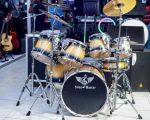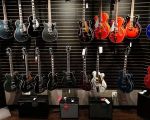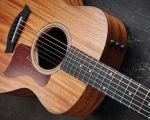Best Digital Audio Workstations (DAWs) for Beginners
If you're just starting out in music production or audio editing, choosing the right Digital Audio Workstation (DAW) can make a huge difference in your experience. As a beginner, you might find the wide array of options overwhelming, but don’t worry—this guide will help you narrow down your choices to some of the best DAWs for those new to the world of music production. Whether you're producing beats, recording vocals, or mixing tracks, the right DAW will be your most important tool. Here are some of the top DAWs to consider as a beginner.
1. GarageBand: The Ideal Starting Point for Apple Users
For beginners, especially those using Mac devices, GarageBand is one of the most accessible and user-friendly DAWs available. Developed by Apple, GarageBand comes free with most Apple devices, making it an affordable starting point for anyone eager to dive into music production. The interface is intuitive, and its features are designed to be easy to use without overwhelming new users. GarageBand offers a range of pre-recorded loops and virtual instruments, making it ideal for those just starting out.
While it’s not as feature-packed as some advanced DAWs, GarageBand is a fantastic way to get familiar with the process of creating and recording music. The transition from GarageBand to more complex DAWs like Logic Pro is also seamless, as they share many similar features. If you're an Apple user, it’s hard to go wrong with GarageBand.
2. Ableton Live Lite: A Great Introduction to Music Production
Ableton Live Lite is a stripped-down version of the popular Ableton Live software, designed to introduce beginners to the basics of digital music production. What makes Ableton Live Lite stand out is its focus on live performance, which makes it an excellent choice if you plan on performing your music live or doing creative live remixes. Its workflow is unique, focusing on arranging and experimenting with audio and MIDI clips in a non-linear format, making it ideal for those who want to explore electronic music production.
Ableton Live Lite is easy to learn, and many professional musicians use the full version of Ableton Live. If you're unsure whether Ableton Live is for you, starting with the Lite version is a great way to test the waters without making a financial commitment.
3. FL Studio: A Beginner-Friendly DAW with Powerful Features
FL Studio is one of the most popular DAWs among producers of electronic and hip-hop music, but it’s also a great choice for beginners in all genres. The software is known for its intuitive, grid-based interface, which makes it easy to understand how music is built from the ground up. Even if you're new to music production, you can quickly start creating beats and loops in FL Studio.
One of the standout features of FL Studio is its extensive library of built-in sounds, plugins, and effects. It’s especially well-known for its powerful step sequencer, which allows users to easily create drum patterns and melodies. FL Studio offers a variety of pricing tiers, so as you grow in your music production skills, you can easily upgrade to more advanced versions of the software.
4. PreSonus Studio One: An Easy-to-Learn DAW with Powerful Tools
PreSonus Studio One is a relatively new DAW, but it’s quickly gained popularity for its user-friendly interface and comprehensive set of features. Studio One is a great option for beginners because it offers an easy-to-understand drag-and-drop workflow and comes with a range of built-in tools like virtual instruments, effects, and an intuitive mixer. You can start creating professional-sounding tracks right out of the box with minimal effort.
While Studio One has the capability to scale with your needs as you grow, it’s still simple enough for beginners to learn quickly. With various editions available, you can start with the Artist edition and upgrade to the Professional edition as you gain more experience.
5. Logic Pro X: The Pro-Level DAW with a Learning Curve
If you’ve outgrown GarageBand or are looking for a more advanced DAW, Logic Pro X is one of the best choices for Apple users. It’s packed with professional-grade tools and features, including advanced MIDI editing, an extensive library of virtual instruments, and powerful mixing and mastering capabilities. Logic Pro X is widely used by professional producers, making it a great option if you plan on advancing in music production.
Although Logic Pro X offers a steep learning curve for beginners, it’s worth the effort due to the range of advanced tools it provides. The good news is that Apple’s ecosystem makes it easy to transition from GarageBand to Logic Pro X, so you won’t be starting from scratch.
Choosing the Right DAW for Your Needs
As a beginner, the right DAW depends on your specific goals and the type of music you want to create. If you're just starting out and need an affordable option, GarageBand or Ableton Live Lite are excellent choices. However, if you’re aiming to create electronic music, FL Studio may be a better fit for your needs. On the other hand, if you plan to take your music production to a professional level in the future, Logic Pro X or PreSonus Studio One could be ideal options that will grow with you.
Ultimately, each DAW has its strengths and weaknesses. The key is to find the one that matches your workflow, musical style, and level of experience. And remember, no matter which DAW you choose, consistency and practice are what will make you a better music producer over time.
At Beat Trigger, we offer expert advice on digital audio workstations and more, helping you choose the best tools for your musical journey. Whether you’re just starting or aiming for professional-level production, we’ve got you covered.








